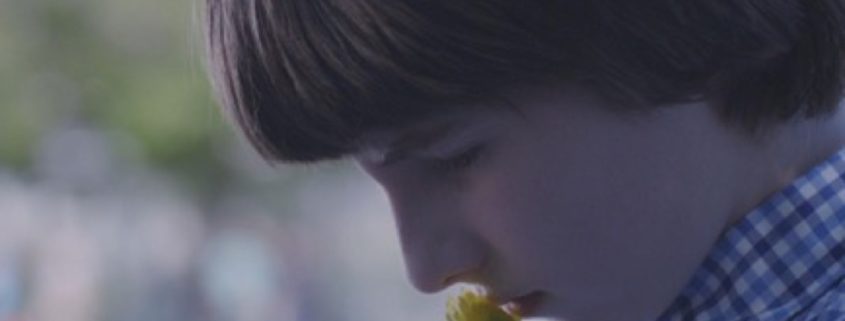I’m Autistic, and This Is Why I Dread Haircuts
I’m an adult autistic person and haircuts are terrifying to me. I find it very frustrating, to be honest, but today—September 5, 2017—I just got my haircut. Staff support and friends were there to help and even though I was terrified enough that I just sat in the chair with eyes wide-open in terror pretty much the entire time, I was able to get through it.
The minute I walked into the salon, I was overwhelmed by the smells of perfumes and makeup, and the sensation of knowing I was there for a purpose that would automatically trigger my anxiety. I had my brave face on and I was ready for the task until the moment I stood in front of the desk and the man asked, “May I help you?” I froze.
Thankfully, my staff realized my feelings and initiated a conversation. I explained afterwards, once I found my voice, that I had anxiety. He seemed pretty nice and led me to a chair to get my hair washed (once things were figured out with what I wanted to get done). I have the unlucky/lucky genetic trait of curly/wavy hair, which is rather interesting to manage.
I was trying to find words, but the moment my glasses came off when he was washing my hair, I started to panic again and then he started asking questions. Thankfully, staff again helped, and things again went smoothly. Really, all I need is that extra hand when walking into the scary unknown and for reassurance. The rest I can do until it become scary again. Then I reach out and then I relax again and then I panic and then I relax again and then I panic. That was pretty much the entire haircut.
But outwardly? I don’t think anyone knew how terrified I was. And honestly, I’m okay with this. They don’t have to know how terrified I am; they just have to offer their hand and be there.
They were also able to help me by having me focus on something else and talking to me to help me think of other things. Even helping me answer the questions that made me panic. It frustrates me that this makes me panic so much because I’ve overcome so many things. I keep wondering what is the cause.
Maybe it’s because I can’t control the situation. Maybe it’s because I don’t know anything about the social norms. Maybe it’s because I don’t understand looks. I don’t know. Whatever it is, I get extremely uneasy once I’m in the chair and I freeze the entire time. But my staff and friends who came with me were able to help me. And this was one of the few times in my life I had a successful haircut without crying afterwards. I even got an undercut.
Afterwards, I rewarded myself with a cherry chocolate Blizzard from Dairy Queen and, to be honest, I went shopping as well and I lucked onto an awesome sale that I don’t regret. I’m still calming down from anxiety, but I am so thankful that I had people who understood me and were there with me.
I still don’t understand the concept of hair, and why hairstyles are so complex. I mean, I like being able to do things with my hair. But I just hate how people judge you for it. If I put my hair up in pigtails, all of a sudden I look so young that I get hit on by people way younger than me. Not only does that make things awkward for me—because I still don’t really understand when I’m being flirted with unless they’re being very very obvious—but usually I’m not interested, which makes things even more awkward.
Anyway, I got a lot of compliments when I posted my selfie on Facebook. I got a lot of smiley faces and congratulations, but to be honest, I was way more excited about the fact that I actually succeeded with not crying after the haircut. I know I shouldn’t reward myself with food (my therapist and I have been working on that), but I’m not yet at that stage. And she said it’s okay to accept that I’m not at that stage yet, and to treat myself once in awhile after a really bad day. Or to reward myself after doing something really hard.
So I decided that instead of doing it after negative things, I’m only going to reward myself for doing really tough things. Because I kept falling into the bad pattern of treating myself after bad days again and again and again. And she was really proud of me for making that healthy choice. And you know what? I’m really proud of me, too. Plus, I have two new adorable Pusheen plushies that I can cuddle with and calm down with in the comfort of my own home and it’s all because I got a brand-new haircut.










